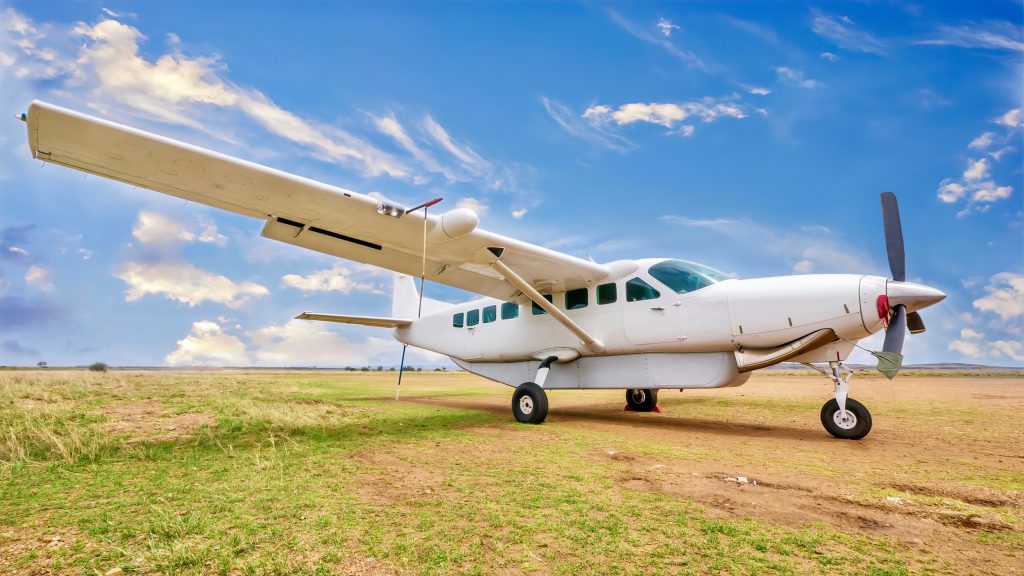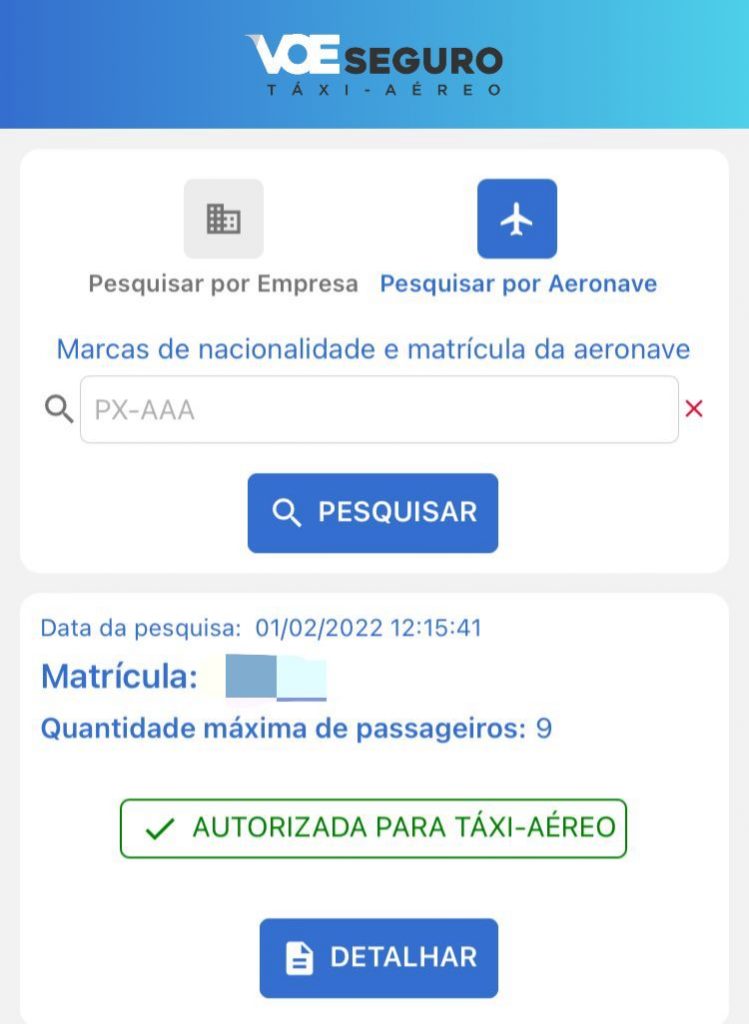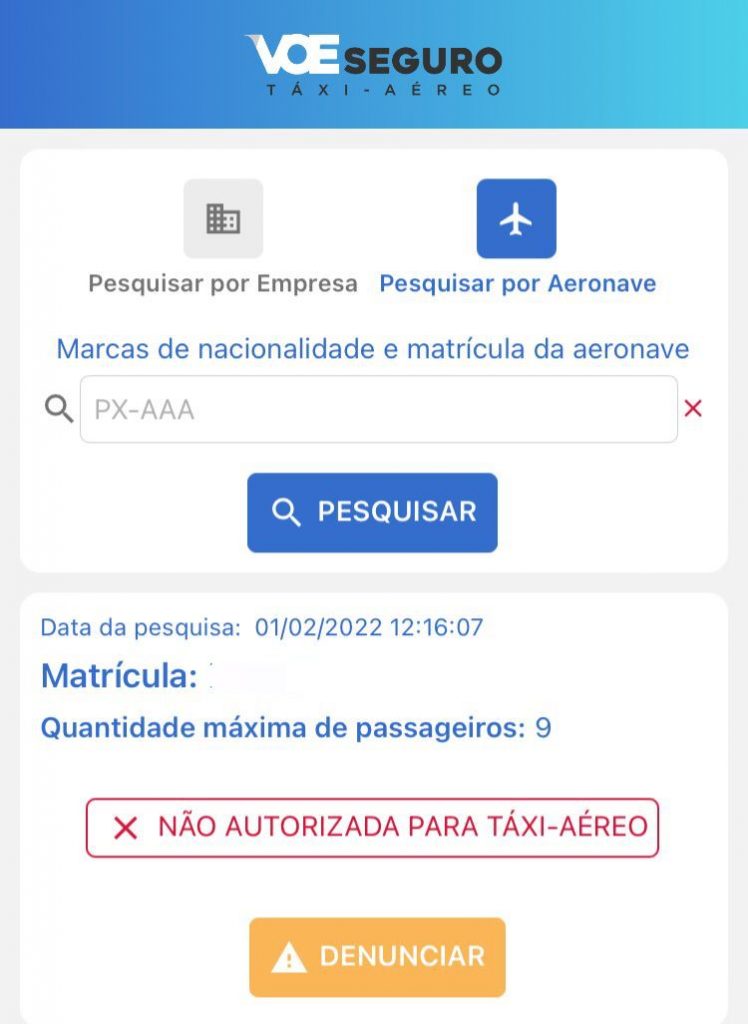Switch to:
 EN
EN  Português (PT)
Português (PT)  Español (ES)
Español (ES)
When you enter the Flapper app or website to book an air taxi flight, you are contracting a service that is highly regulated, complying with various standards so that the operation achieves the highest possible level of safety.
Brazil – together with Mexico, Canada, Germany, and the United States forms the group of leading executive aviation markets – the commercial air taxi market is implemented by the Brazilian Civil Aviation Regulation (RBAC) No. 135 of the National Agency of Civil Aviation (Anac).
It is a document that details the rules for all processes involving the air taxi service. Thus, those who intend to work in the sector are obliged, for example, to maintain a more rigorous maintenance program, conduct ongoing pilot training, and contract specific insurance.
Why is it important for us to talk about this? In recent years, the pirate air taxi market – or clandestine air taxi, also known as taca – has been expanding in the country. And this puts at risk not only the passengers and crew on these aircraft, but also third parties and the greater air system.
The Risks of Flying in a Pirate Air Taxi

Consumers are often attracted to tacas because of the price. In the parallel market, an itinerary can be up to 50% cheaper than with a company that follows all the legislated rules.
Costs drop so much because most aircraft used as a pirate air taxi operate under the Brazilian Aeronautical Homologation Regulation (RBHA) No. 91, from Anac, which determines the general rules of operation for civil aircraft. Thus, if a corporation and/or individual makes its civil equipment available as an air taxi, we have a case of illegal operation.
Owners of these planes or helicopters must still follow safety standards, but these are much less stringent than those imposed on aircraft that operate commercially. Maintenance, therefore, is under the responsibility of the owners and inspection is not even close to the high standard practiced in the regulated sector.

To give a measure of the difference in safety levels, we can look at data from the Sipaer Panel, compiled by the Brazilian Air Force’s Center for Investigation and Prevention of Aeronautical Accidents. The private aviation segment (where the flights of the tacas also fit in) recorded, in the last ten years, 1,660 occurrences of accidents, incidents, and serious incidents. Meanwhile, in the air taxi sector, that number was 631.
Regarding the crew, there are other risks. When an experienced pilot takes on one of these flights (usually to earn extra cash), he often may not have taken the necessary rest time between flights. In addition, on other occasions, those who agree to work with clandestine air taxis are beginner pilots, who even fly for free to obtain more flight hours.
There are still other dangers. For example, if you have an accident on a clandestine flight, it is very likely that life and property insurers will not cover the losses. In addition, there are simpler fiscal issues, such as invoices that do not really correspond to the contracted operation.
Clandestine Air Taxi: How to Avoid Pitfalls?
One of the difficulties when it comes to discerning whether an air taxi operator is a legitimate company is the fact that these companies operate under the veneer of legality, with websites and means of contact that appear to be somewhat credible. Therefore, it is necessary to maintain an active skepticism when evaluating your air taxi.
In 2018, Anac intensified the inspection of the sector and created awareness campaigns about clandestine air taxis. One of the main legacies of this movement is the Voe Seguro app. In it, users can check whether the company offering the service is authorized to operate in the segment, and whether the aircraft to be used meets the agency’s safety requirements and requirements.
At the time of boarding, a few simple initiatives can ensure that you are safe. First, check that the plane or helicopter you are boarding has the same prefix as the operator informed you at the time of hiring.
In addition, it is required by law that all aircraft approved by Anac for passenger transport operations have an identification sticker with “public transport” written out on the boarding gate. The signage must be in a location that is easily visible to the user.
It is also possible to demand from the company its air transport approval certificate, also known as an air operator certificate (COA). With this document in hand, the user can request confirmation on the validity of the certificate from Anac.
If you observe, in any of the initiatives mentioned above, any irregularity or suspicion, it is better not to board and pass the verification on to the operator. Prioritize your safety and, if necessary, contact the relevant authorities.
Currently, fines for those who offer clandestine air taxi service range from R$12,000 to R$200,000. Those who provide clandestine aerial maintenance services (also called Maca) can be penalized with fees ranging from R$15,000 to R$150,000. Pilots can also be warned and eventually even lose their license.
Fly Safely With Flapper
Now you know how to avoid pitfalls when chartering your air taxi, but there is an option that will give you 100% peace of mind and safety: flying with Flapper. We pride ourselves on working only with RBCA 135 certified air taxi operators (or equivalent in the case of international flights).
In addition, the codeshare flights we offer come with an additional “scheduled operation” certification, ensuring extra security and higher operational service for all passengers.
No matter if you are a novice in the world of executive aviation or an experienced traveler, contact Flapper, access our website and app, and get an instant quote for your next trip. If you need more information, please contact our team:



